A state-of-the-art automated robot is being used to test water quality at a science hub in Edinburgh.
The benchtop robot has been installed at Scottish Water’s Juniper House laboratory in Currie.
It is used by the utility's Scientific Services department which carries out a range of vital tests on all of the country's drinking water. Specialists in its Inorganics team work every day to check the pH, colour, turbidity and conductivity of water.
The tests are carried out on water taken from customer taps, reservoirs, water treatment works, swimming pools and private water supplies.
The work was previously carried out on a machine called a Peerless Auto Analyser, which was coming to the end of its user life. Although effective it took up a large space in the relatively small labs and also needed large volumes of samples (meaning bigger bottles) and chemicals for tests to be carried out.
Anna Figueras Carril of Scottish Water said: "We wanted a more compact and reliable piece of equipment and, ideally one with bigger capacity to sample and test different waters. When we came across the robots we knew they ticked every box.
"Increasing customer demand – in terms of growing and changing populations and tighter water quality regulations - means we are carrying out more tests on drinking water than ever, over 500 tests per day. Drinking water regulations are increasingly more stringent, meaning that Scottish Water has to test samples more often to ensure that the quality of our water is never compromised.
"The robots mean we will have much less wastage in terms of water and chemicals needed for testing and also a reduction in plastic, as we will be able to use smaller sample bottles. This will all help Scottish Water get a step closer to its net zero emissions target by 2040."
Improvements in robotics have meant that the instrument's footprint is smaller than the previous auto analyser but with a similar capacity. Having two analysers will almost double our capacity in the Edinburgh site. The company behind the robots has made every effort to make the process as efficient as possible.
The robot works by moving its pH and conductivity probe into each sample and drawing a portion of sample to the turbidity meter and colour spectrophotometer. Despite being slower than the previous auto analyser, the new robot is more robust and reliable and it has enabled us to extend the method ranges and lower the detection levels in line with the tighter water quality regulations. Scotland is famous for its peaty waters, so increasing the range of colour and turbidity saves a lot of analyst time as samples will not need to be diluted prior to analysis.
The previous water analyser used for testing started operating at the Edinburgh site in 2010. It handled around 200 samples a day from all over Scotland, excluding the Highlands and Islands, which are analysed at the utility’s Inverness lab. It was starting to cost a lot of money for repairs as it was nearing the end of its life, which meant spare parts were becoming increasingly hard to find and costly.
The new robotic equipment is so state-of-the art specialist engineers from the Netherlands had to fly over to install the robot. This is where the robots are manufactured, meaning that the installation was carried out by engineers that know the robots inside and out.
The engineers also trained a reduced number of staff in the use of the instrument due to Coronavirus restrictions. Further training will be carried out internally to the rest of the team, ensuring that the knowledge is successfully and thoroughly passed on.
The team plan to install another robot in Edinburgh by the end of the year which will allow Scottish Water to keep up with demand and ensure compliance.
Construction News
06/11/2020
Science Hub Uses Automated Robot To Test Water Quality
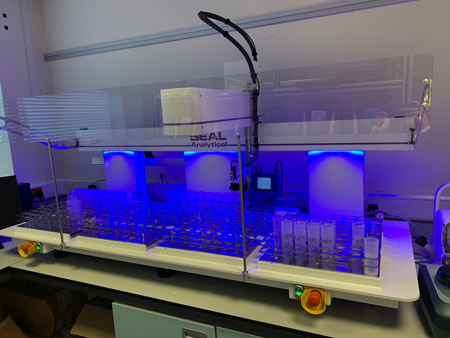
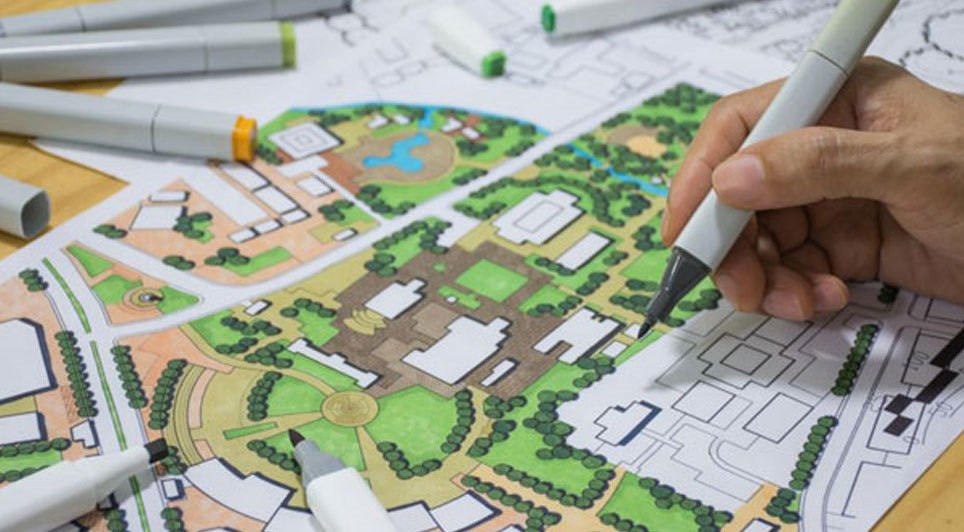
16/04/2025
Construction work on the £5 million repair and refurbishment project at the Loch Centre in Tranent is scheduled to commence in June 2026.
East Lothian Council has announced the anticipated start date for the significant upgrade to the well-used community facility.
Under the current timetable, the
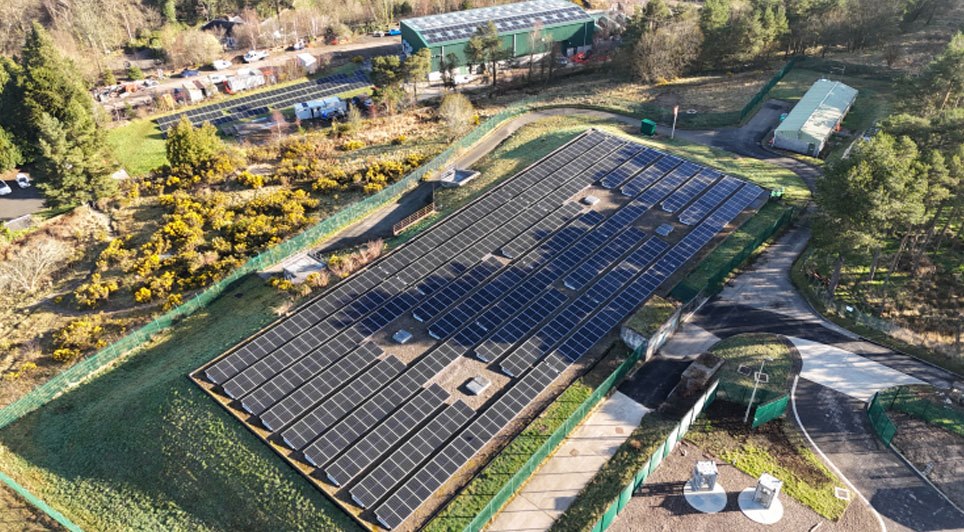
16/04/2025
A £636,000 project to install solar panels at the Gorbals water pumping station in South Ayrshire has been successfully completed.
The scheme aims to provide a renewable energy source for pumping water to thousands of customers in the region.
The project involved the installation of 793 solar pan

16/04/2025
A planning application has been lodged with Glasgow City Council by The JR Group, acting on behalf of Wheatley Group, for the construction of 29 much-needed affordable homes in the Baillieston area of the city.
The proposed development on Caledonia Road will offer a mix of one- and two-bedroom apa
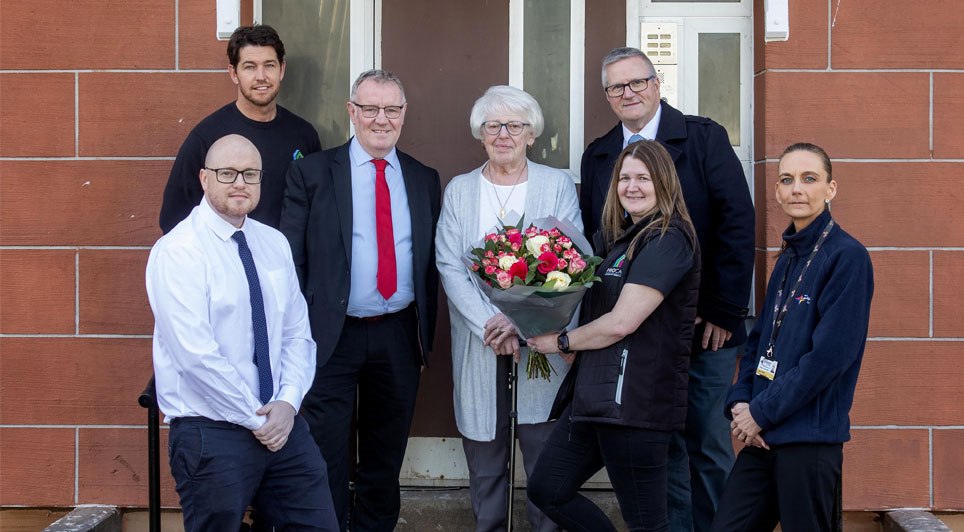
16/04/2025
Residents in 20 blocks of flats across Coatbridge are already experiencing the positive impacts of a recently completed, ambitious energy efficiency refurbishment project.
The extensive construction work has delivered significant improvements to the properties, including the installation of cavity
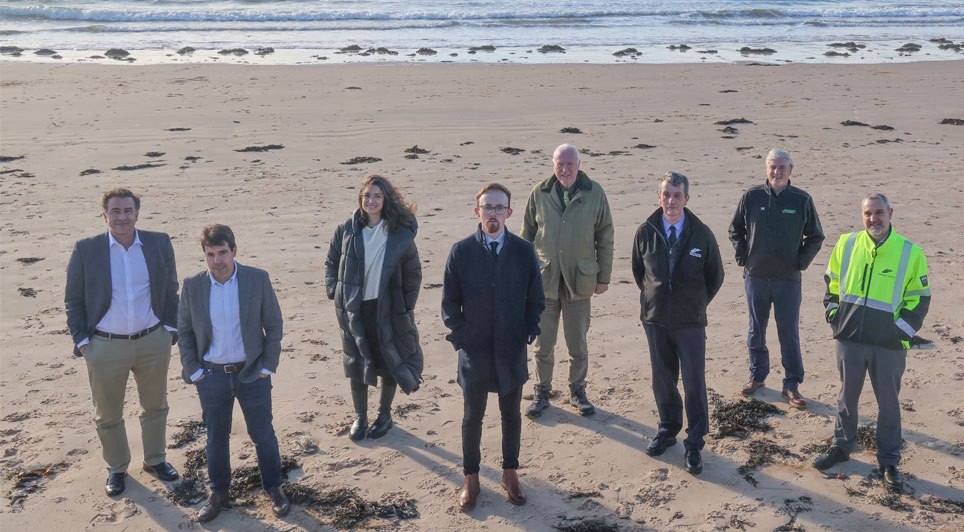
16/04/2025
Ground investigation works are commencing this month at the proposed site for Orkney Islands Council’s Scapa Deep Water Quay at Deepdale in Holm.
These initial investigations will be followed by marine-based site investigation works scheduled to begin in June.
These works form part of the Pre-Con
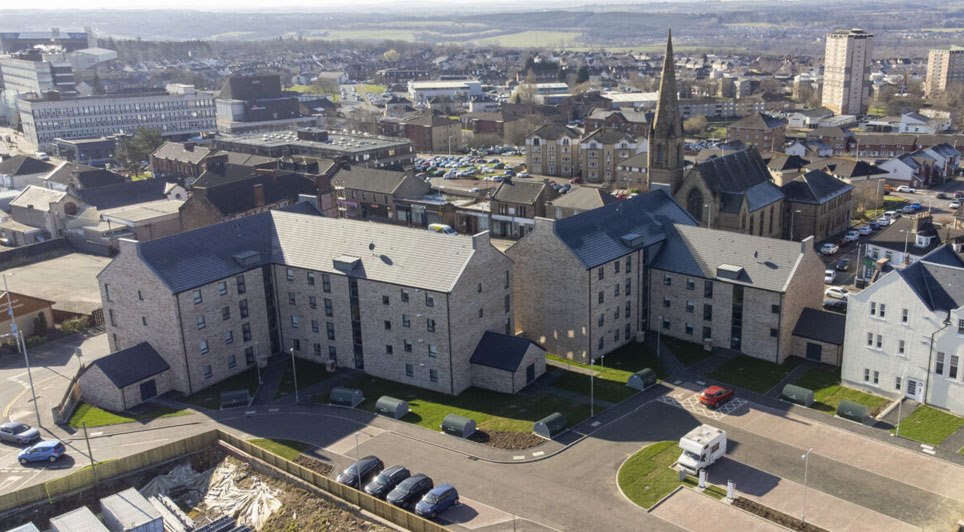
16/04/2025
Construction work has been finalised on a significant new housing development in Motherwell town centre, delivering 42 newly built, highly energy-efficient flats alongside the respectful conversion of the B-Listed YMCA building into a further six homes. The project, part of North Lanarkshire Council
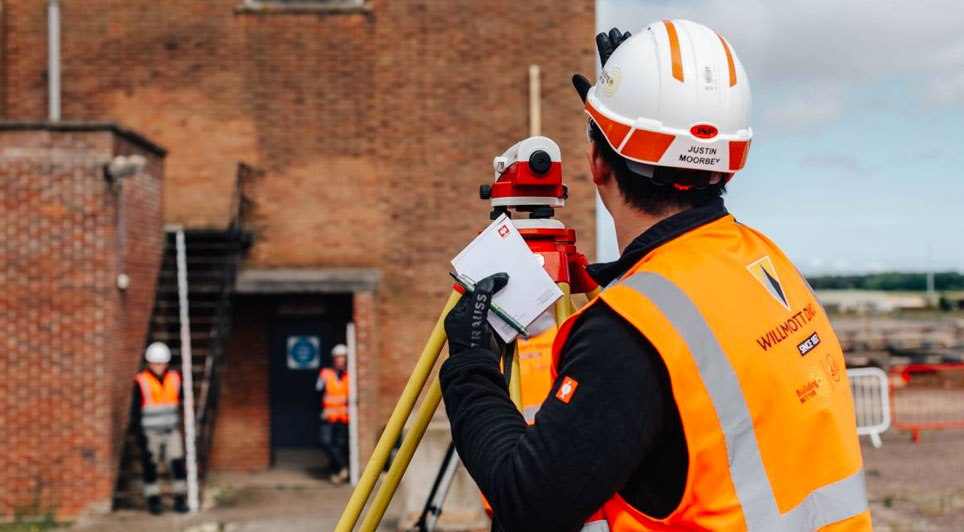
16/04/2025
The Construction Industry Training Board (CITB) has today released its year-end performance data for its New Entrant Support Team (NEST), revealing a significant increase in apprenticeship starts. During the financial year 2024-25, NEST supported 4,128 individuals in commencing apprenticeships, a su
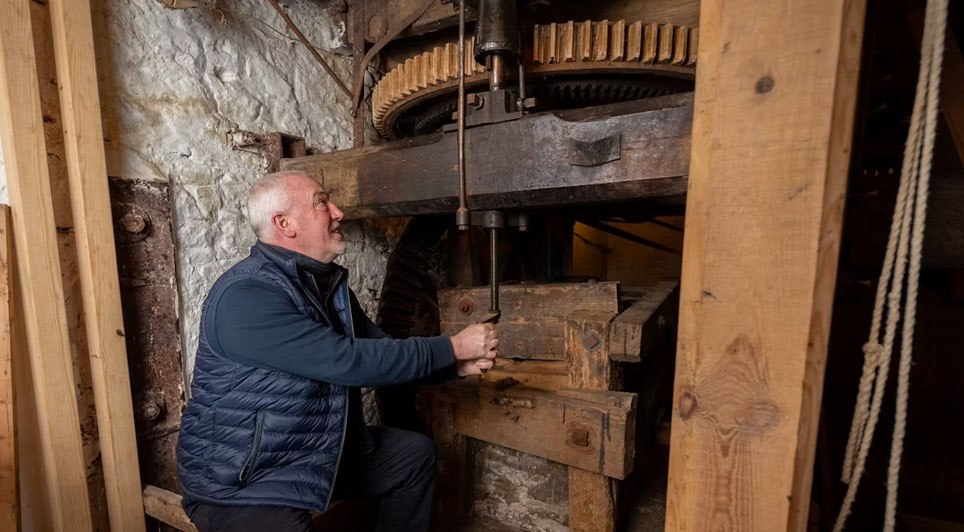
16/04/2025
A water-powered mill in Angus is set to grind grain once again after receiving a record-breaking donation to fund its restoration.
The National Trust for Scotland has announced that a long-time member of the conservation charity has gifted an incredible £2.4 million, one of the largest single dona

15/04/2025
Construction of a £70 million student accommodation development at 292-298 St Vincent Street in Glasgow has reached a significant milestone, with the building now visibly rising from the ground.
Drone footage has captured the progress of the project, which is a partnership between developer Artisa

15/04/2025
Energy regulator Ofgem is expected to confirm today (April 15) its finalised Connections Reform process, designed to expedite grid connections for renewable energy projects that are ready and crucial for achieving the UK's clean power targets for 2030 and beyond.
The new connections system, anticip
 Scotland
Scotland UK
UK Ireland
Ireland London
London











